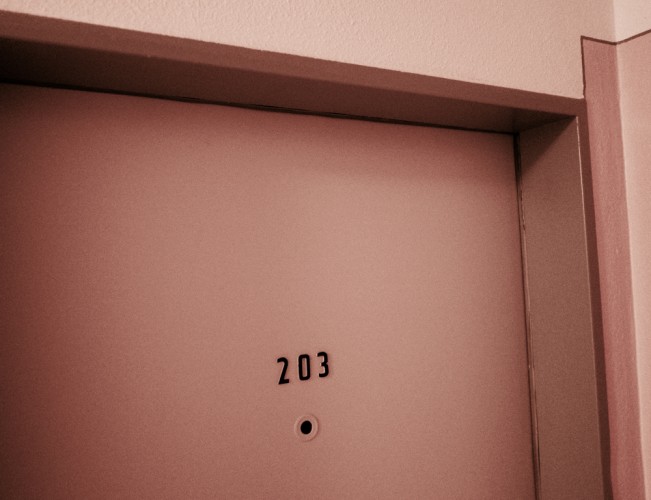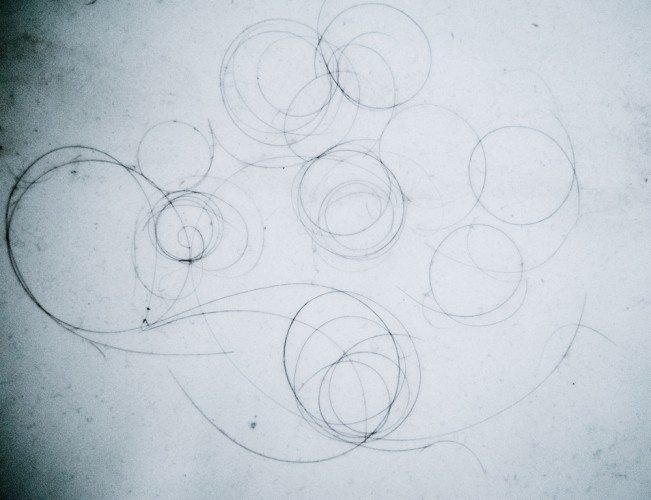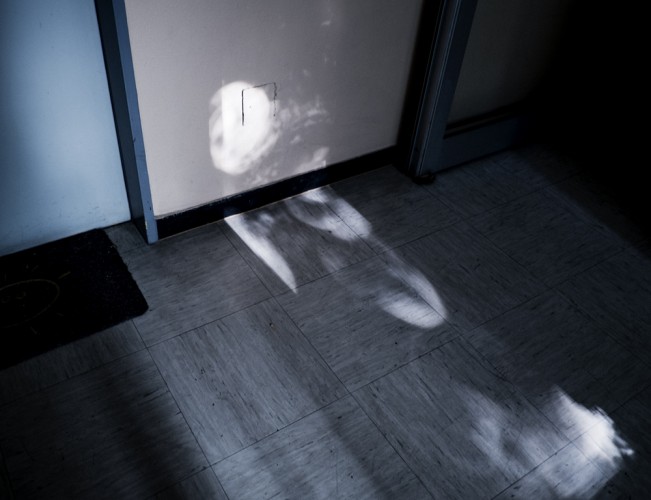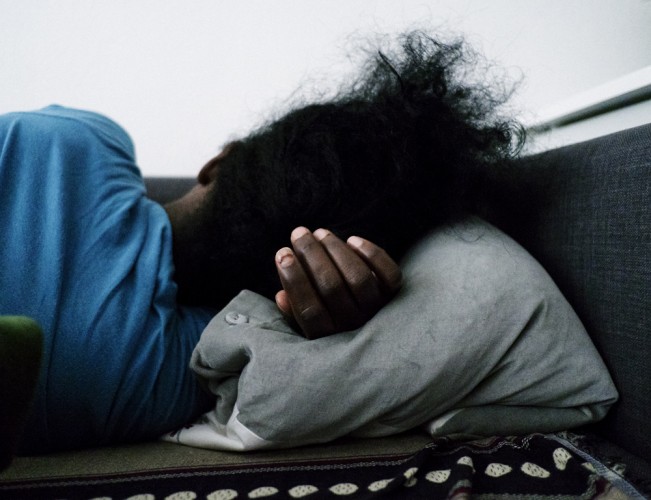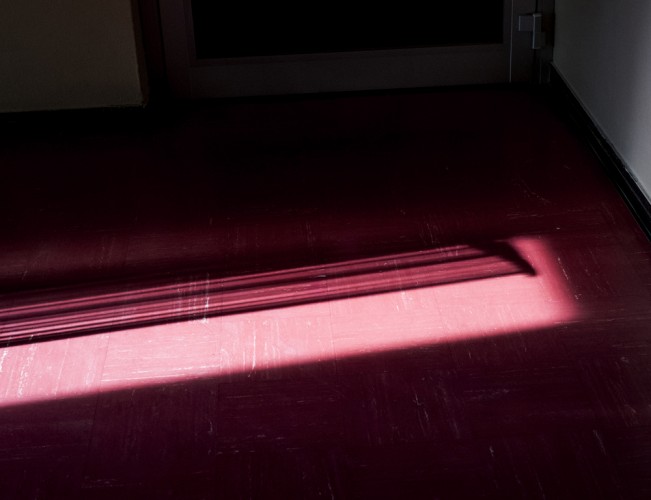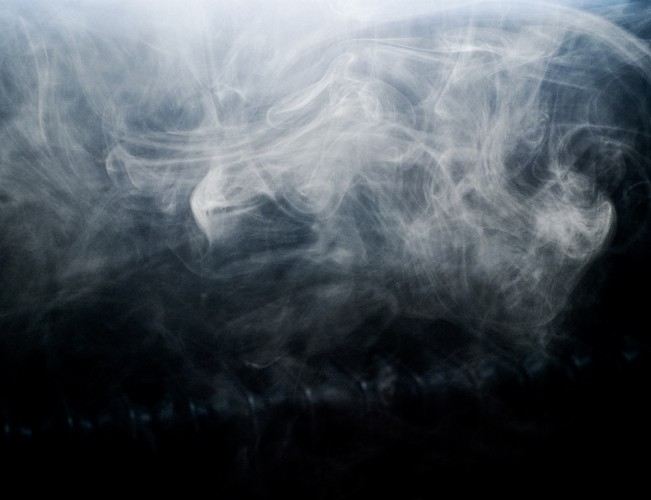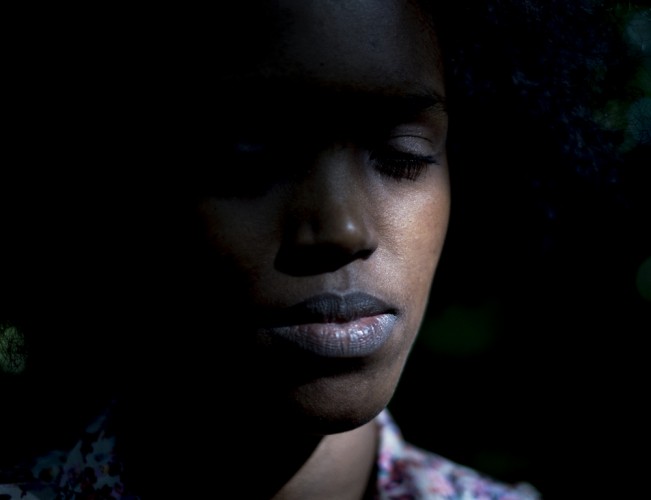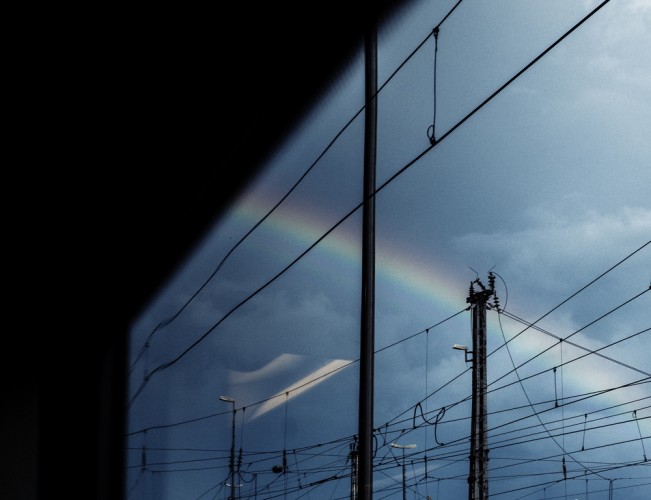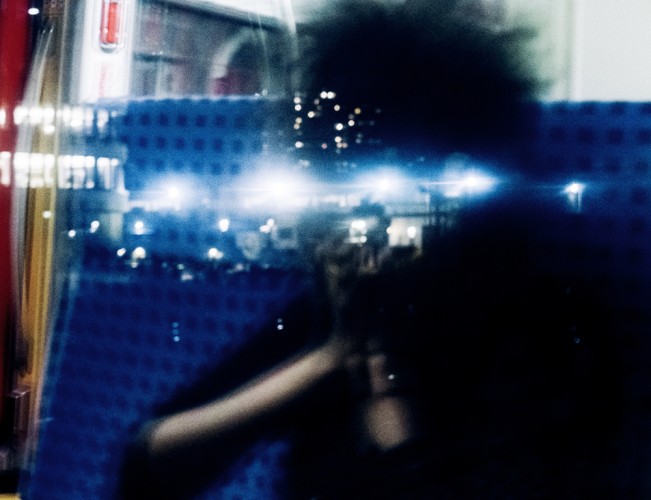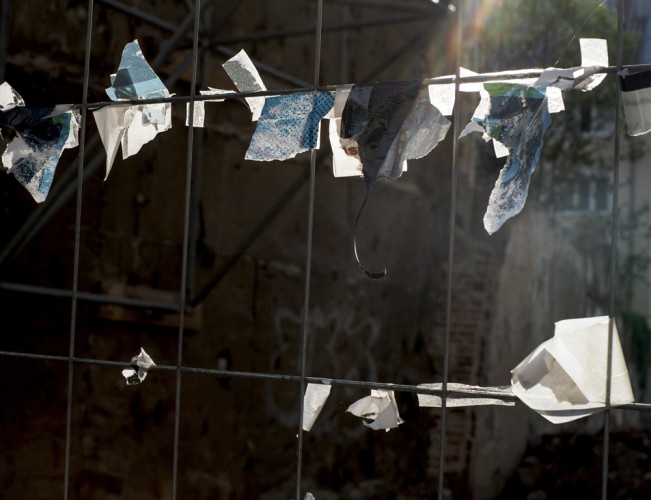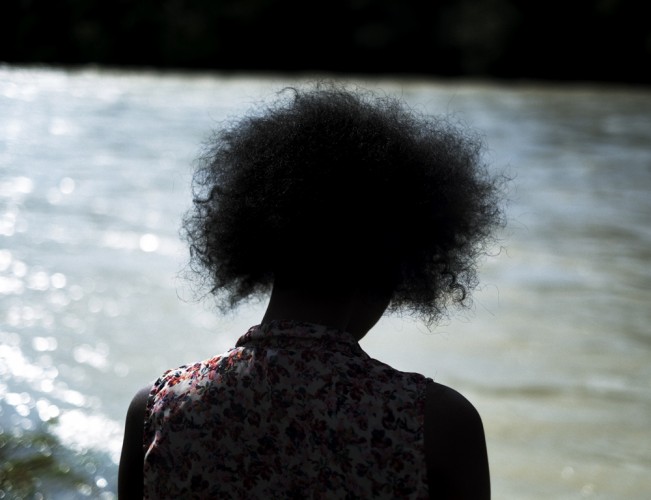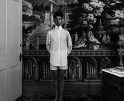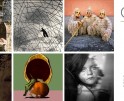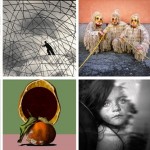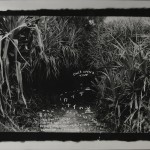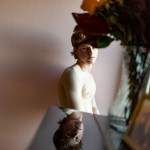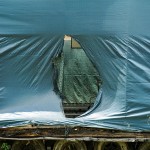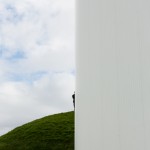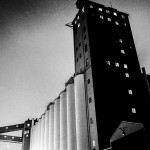Inès Dümig : CENTER’s Project Launch 1st Place Winner
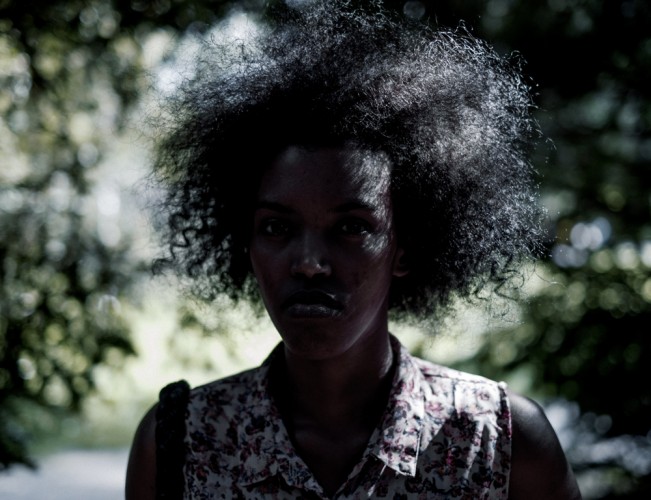 Heartfelt congratulations to photographer Inès Dümig for her Project Launch 1st Place win, awarded by CENTER. The project she submitted was Apart Together, which documents a Somali immigrant in a state of flux.
Heartfelt congratulations to photographer Inès Dümig for her Project Launch 1st Place win, awarded by CENTER. The project she submitted was Apart Together, which documents a Somali immigrant in a state of flux.
The Project Launch is granted to an outstanding photographer working in fine art series or documentary project. The grant includes a cash award to help complete or disseminate the work, as well as providing a platform for exposure and professional development opportunities. This year the jurors for Project Launch were: Anne M. Lyden, International Photography Curator, National Galleries of Scotland, Bernadette Tuazon, Senior Photo Editor, CNN Digital and Jack Woody, Publisher, Twin Palms Publishers. Their statements follow.
Juror’s Statement: Anne M. Lyden, International Photography Curator, National Galleries of Scotland
This year’s Project Launch included hundreds of applicants and about 10,000 images. I was struck by the overall caliber of the projects, the majority of which were well thought out and executed. It was a challenge to get down to a shortlist for final deliberation and selection. The theme of international borders and national identity was a common one in this year’s submissions, and it was interesting to see so many photographers take on these global issues of identity and shifting demographics. This exploration of nations past, present and future I found to be the most engaging, both visually and conceptually—as it seemed to reflect a larger vision of the world in general, even if some of the stories were intensely personal.
The jurors decided that winner of the Project Launch is Inès Dümig for Apart Together, which reveals the story of Sahra, a young Somali migrant who currently lives in Munich, Germany awaiting a decision on her possible deportation. Dümig delicately and evocatively presents the subject in a series of images that portray Sahra and her environment in a state of limbo, awaiting her fate. According to the photographer, 2,486 unaccompanied under-aged minors were registered in Germany in 2013. As the borders to Europe tighten against illegal migration, Sahra’s story is just one of many. It is a story that is repeated around the world and yet goes largely ignored but for its strategic use in political propaganda and nationalistic rhetoric. Dümig’s photographs put a face to the story, while simultaneously retaining the woman’s anonymity.
Sticking with this theme of international boundaries I chose Frontera by Pablo Lopez Luz for the Juror’s Choice as his work continued to resonate with me long after I had finished viewing it. The México-US border is invariably presented as a cultural and political divide separating two very different countries and yet, seeing it from the air as we do in Luz’s work we are presented with a seemingly uniform landscape. He offers a novel way of considering this boundary and all that it symbolizes and in so doing, creates a new visual discourse on this age-old territorial border.
Both Dümig and Luz clearly articulated their projects through their images and statements. Overall, having statements accompany the submissions was extremely insightful, helping to further reveal the personal vision of the photographer or exposing those that were lacking in vision and whose work was derivative. The images that caught my attention and advanced through the process did not touch on generic themes or popular tropes; they explored new subjects or engaged in fresh ways of looking at familiar subjects. As fearful as I was to look at so many images at once, it was a remarkable exercise in seeing what is happening in contemporary photography today. I thank all the participating photographers and CENTER for the experience.
Juror’s Statement: Bernadette Tuazon, Senior Photo Editor, CNN Digital
It is my absolute privilege to be a part of this year’s Project Launch Grant. With the ubiquity of photography and editing platforms, it can be easy to dismiss that a single photo can both be art and a call to action.
The works presented are probing and naturally open up to lengthy discourse. In no way are they bogged down by flashy storytelling; a commitment to show a story succinctly was clearly the guiding light here.
Each undertaking was executed with artistic aplomb. The stories we encountered ran the gamut, but all were breathtaking and impressive in scope.
This year, we are unanimous in our choice of awarding the grand prize to Inès Dümig for her project entitled Apart Together. This project focuses on the plight of a young Somali woman named Sahra, whose deportation from her temporary home in Munich is pending. The subject of immigration is an oft-visited story yet Dümig ably brings a refreshing visual perspective that highlights that people are not merely moving, but there are ever-shifting issues that need to come to light. Impressively, each frame is laden with emotion, and we are confronted with the immediacy of Sahra’s uncertainty.
The photos hint of mystery yet exposes the subject and her very personal struggles.
Tackling another global theme, my juror’s choice is Alejandro Duran’s work entitled Washed Up. The singular focus applied to this project is unparalleled: collecting thousands of plastic bottles, jugs, containers and other similar disposable items that he has identified from 50 nations found on Mexico’s Caribbean coast and creating installations that are “color-based and site-specific.”
The end result: eye-grabbing, colorful and whimsical but extremely effective in urging all of us to pay attention to this global catastrophe.
My congratulations to Dümig and Duran for their success and my sincere admiration to CENTER for continuing to provide a platform that allows photographers around the world to showcase their photographic vision.
Juror’s Statement: Jack Woody, Publisher, Twin Palms Publishers
The unique situation with this group of jurors is we all settled on two portfolios during our initial selection and quickly chose an outstanding project: Ines Dumig’s ethereal portrait of Sahra, a Somalian immigrant now living in Munich with a bureaucratic description attached to her situation translated as “suspending of deportation”, which serves as a perfect metaphor for Dumig’s images.
Sahra, the light around her and the contents of her world are photographed by the artist without suggesting how this is all going to end. The way Dumig’s images are ‘suspended’ somewhere between the possibilities of hopeful and hopeless dares the viewer to empathize with Sahra and the details of her days. When viewing this portfolio I wanted to see more; I want to see what happens.
There were at least a dozen more entrants whose work held me and many smart and perfect images throughout the hundreds of portfolios. My juror selection is Antoine Bruy’s project Scrublands, his 13-year odyssey photographing families and individuals living ‘off the grid’. From those who have chosen to live just beyond the edges of our ‘civilized’ world, Bruy has brought back a memorable portrait of people who do not want to be like us.
Apart Together
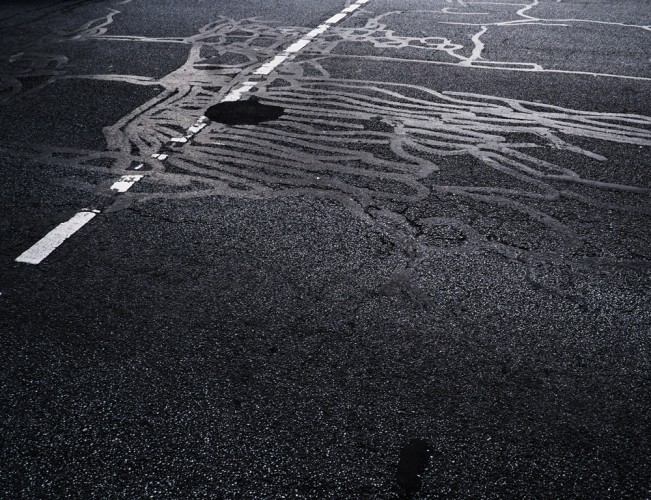 According to the International Organisation of Migration, there are over 200 million migrants worldwide and the geographic region of Europe is home to the highest number. There are economic reasons, civil wars and effects of global warming that force people to leave their home country. We see these stories repeated over and over again in the media. It’s a dangerous journey, but most don ́t have a choice. Notwithstanding the Schengen region seals off its Southern borders more and more consistently. Arguing to protect Europe from illegal migration. The electronic monitoring system Eurosur is equipped with new skills and rapid intervention teams for border security, the so-called Rabits who ensure a complete shield to Europe’s fortress. As a result of this foreclosure strategy, less refugees reach the EU territory. 2.486 unaccompanied underaged refugees were registered in Germany in 2013.
According to the International Organisation of Migration, there are over 200 million migrants worldwide and the geographic region of Europe is home to the highest number. There are economic reasons, civil wars and effects of global warming that force people to leave their home country. We see these stories repeated over and over again in the media. It’s a dangerous journey, but most don ́t have a choice. Notwithstanding the Schengen region seals off its Southern borders more and more consistently. Arguing to protect Europe from illegal migration. The electronic monitoring system Eurosur is equipped with new skills and rapid intervention teams for border security, the so-called Rabits who ensure a complete shield to Europe’s fortress. As a result of this foreclosure strategy, less refugees reach the EU territory. 2.486 unaccompanied underaged refugees were registered in Germany in 2013.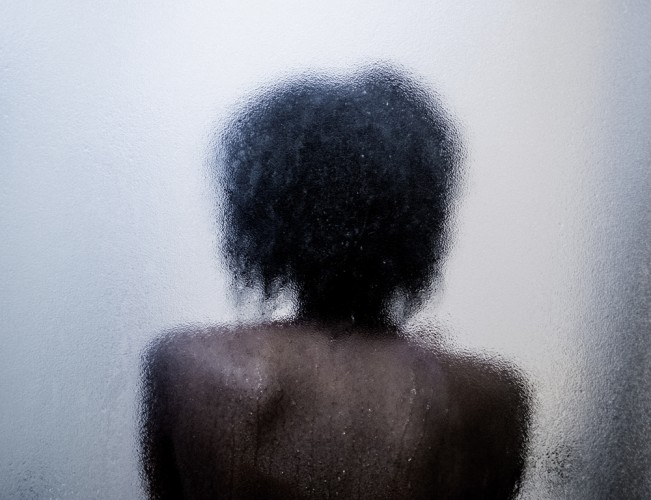 Is human dignity invaluable? The world around us would seem to suggest otherwise. With this project I have tried to regain some of that lost dignity, those private moments when we feel safe enough to reveal some of ourselves. But these revelations are only fragments of a story that I want the viewers to complete for themselves. I wanted to show an insight into my subjects’ life. She reveals her inner selves but many of her feelings and emotions can be accessed only subliminally. Sahra was born in Somalia, but left her home country when she was fourteen. After a perilous two year journey she currently lives in Munich, Germany. Her state is: Suspending of deportation. Through this project I have tried to explore aspects of her fragmented life. My photography is trying to capture her story, The pictures are different pieces of her life, her personality and what happened. Coming to Europe as a refugee but never being able to settle, she tries to be part of a new world while reflecting on the people the culture that occupy it. Through her unresolved situation and all her experiences she cannot establish a fixed identity instead she has many identities. Her life is moving along uncertain patterns. Those that we are all try to shape when we are young and discovering the people that we are. It reminds me of a mosaic or a labyrinth. Like the patterns on her fingers are a poetic symbol. As her fingerprint plays a significant role in her story, the lines can be seen in relation to her journey and the distance she travelled. Her story is a remarkable one, but in relation to the overall situation I wanted do something that reflects the fact that we are not that moved by. Her testimony is just another one lost in the countless others like hers that seen documented before. We hear so many of these stories, somehow we all know them already. In this sense, they become meaningless. I see this project as a reaction to my feelings to the medias inadequacy in dealing with these testimonies.
Is human dignity invaluable? The world around us would seem to suggest otherwise. With this project I have tried to regain some of that lost dignity, those private moments when we feel safe enough to reveal some of ourselves. But these revelations are only fragments of a story that I want the viewers to complete for themselves. I wanted to show an insight into my subjects’ life. She reveals her inner selves but many of her feelings and emotions can be accessed only subliminally. Sahra was born in Somalia, but left her home country when she was fourteen. After a perilous two year journey she currently lives in Munich, Germany. Her state is: Suspending of deportation. Through this project I have tried to explore aspects of her fragmented life. My photography is trying to capture her story, The pictures are different pieces of her life, her personality and what happened. Coming to Europe as a refugee but never being able to settle, she tries to be part of a new world while reflecting on the people the culture that occupy it. Through her unresolved situation and all her experiences she cannot establish a fixed identity instead she has many identities. Her life is moving along uncertain patterns. Those that we are all try to shape when we are young and discovering the people that we are. It reminds me of a mosaic or a labyrinth. Like the patterns on her fingers are a poetic symbol. As her fingerprint plays a significant role in her story, the lines can be seen in relation to her journey and the distance she travelled. Her story is a remarkable one, but in relation to the overall situation I wanted do something that reflects the fact that we are not that moved by. Her testimony is just another one lost in the countless others like hers that seen documented before. We hear so many of these stories, somehow we all know them already. In this sense, they become meaningless. I see this project as a reaction to my feelings to the medias inadequacy in dealing with these testimonies.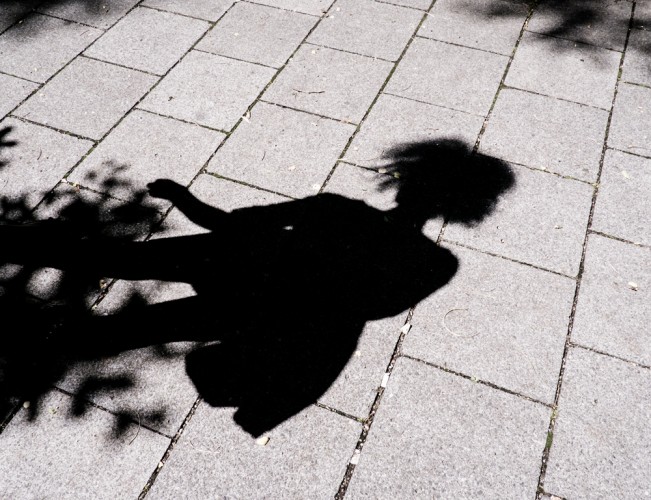 Isolation is a main issue in her story. That’s why I decided to photograph her on her own. It’s the issue of closeness and distance that play an integral role in her story. The images have been made in a way that fragments the subject. They have lost their visual wholeness, the totality of their being in the frame; just a small fragment remains. Similarly in her story, only a small part of the story can be retold. We are in reality only able to gain insight into a small fraction of her and visually, we can only see a fragment of a person’s life. Symbolic meanings play a significant role in the pictures, which are like windows to her inner landscape, different interiors. What French poet André Breton described “ A desire to deepen the foundations of the real, to bring about an ever clearer and at the same time ever more passionate consciousness of the world perceived by the senses” The stories we see in the media related to immigration are fleeting. With these pictures I intend for the viewer to stand still. To pause for a moment. It is a test of our hear and now, a touch from a distance. My intention is to put us in real contact with absolute distance, the searching for a presence- if we understand that presence is not something present; what is there, not approaching, not withdrawing (…) and yet designates an infinte relation(Maurice Blachot).
Isolation is a main issue in her story. That’s why I decided to photograph her on her own. It’s the issue of closeness and distance that play an integral role in her story. The images have been made in a way that fragments the subject. They have lost their visual wholeness, the totality of their being in the frame; just a small fragment remains. Similarly in her story, only a small part of the story can be retold. We are in reality only able to gain insight into a small fraction of her and visually, we can only see a fragment of a person’s life. Symbolic meanings play a significant role in the pictures, which are like windows to her inner landscape, different interiors. What French poet André Breton described “ A desire to deepen the foundations of the real, to bring about an ever clearer and at the same time ever more passionate consciousness of the world perceived by the senses” The stories we see in the media related to immigration are fleeting. With these pictures I intend for the viewer to stand still. To pause for a moment. It is a test of our hear and now, a touch from a distance. My intention is to put us in real contact with absolute distance, the searching for a presence- if we understand that presence is not something present; what is there, not approaching, not withdrawing (…) and yet designates an infinte relation(Maurice Blachot).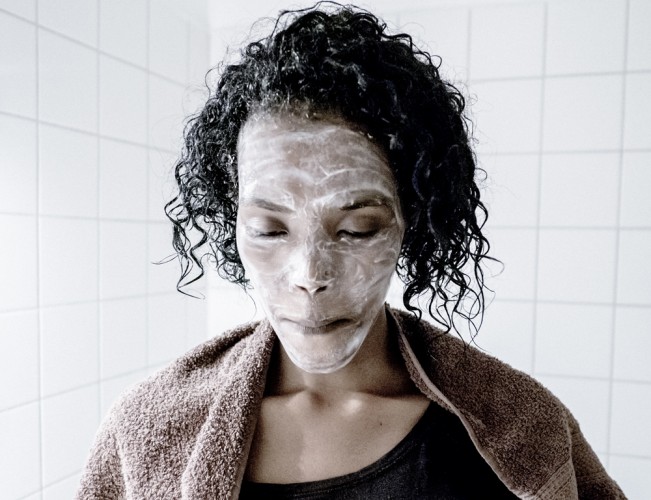
Posts on Lenscratch may not be reproduced without the permission of the Lenscratch staff and the photographer.
Recommended
-
Arnold Newman Prize: C. Rose Smith: Scenes of Self: Redressing PatriarchyNovember 24th, 2025
-
Celebrating 20 Years of Critical Mass: Cathy Cone (2023) and Takeisha Jefferson (2024)October 1st, 2025
-
Celebrating 20 Years of Critical Mass: George Nobechi (2021) and Ingrid Weyland (2022)September 30th, 2025
-
Celebrating 20 Years of Critical Mass: Amy Friend (2019) and Andrew Feiler (2020)September 29th, 2025
-
Celebrating 20 Years of Critical Mass: Jennifer McClure (2017) and JP Terlizzi (2018)September 28th, 2025

